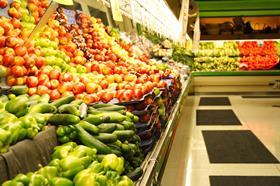
Brexit could contribute to thousands more deaths from heart attacks and strokes by 2030, new research has found.
In one of the first studies to date to look at the impact of Brexit on food imports and public health, researchers from Imperial College London and the University of Liverpool looked at how varying Brexit scenarios would lead to increasing costs for imported fruit and vegetables, resulting in people potentially eating less and increasing their risk of cardiovascular disease (CVD).
The findings, published today in the journal BMJ Open, reveal that all the trade scenarios they looked at would reduce fruit and veg intake in England, with a ‘no-deal’ Brexit being the most damaging to public health.
They predicted it would lower fresh produce consumption and contribute to around 12,400 additional deaths from CVD in England between 2021 and 2030.
Professor Christopher Millett, from the School of Public Health at Imperial, who jointly led the research, said: “The UK’s exit from the European Union has long been framed in terms of its political and social importance. But this study shows that the impact of Brexit will reach far beyond the economy and may affect people’s risk of disease.
“The UK government must consider the public health implications of Brexit trade policy options, including changes to the price of key food groups.”
Eating a diet rich in fresh fruits and vegetables is linked with a lower risk of serious health conditions, including heart disease, cancer and stroke – with the World Health Organization advising people to eat an average of five portions per day.
However, a large proportion of fruit and veg eaten in the UK is imported – with 84 per cent of fruit and 43 per cent of vegetables consumed in the UK in 2017 imported from the EU and non-EU countries.
In the latest study, researchers used publicly available data to model the potential impact of trade tariffs and other levies on the price of imported fruit and veg, the impact on how much consumers eat, and the associated increase in risk of CVD.
The team used data from the World Trade Organization and HM Revenue and Customs to model the impact of different Brexit scenarios on the price of imported fruit and veg including: a free-trading agreement with the EU and third-party countries; a free-trading agreement with the EU; and a no-deal Brexit without a new trade agreement.
Their scenarios assumed an increase in trade tariffs and transaction costs – additional costs attributed to increased border controls – which the UK will be required to pay on imported goods when it leaves the EU.
Average intake of fruit and veg for adults (25 years and older) were taken from a national diet and nutrition survey, and the impact of fruit and veg intake on the risk of CVD were taken from published, peer-reviewed studies.
While all modelled Brexit scenarios were associated with an increase in CVD deaths, a no-deal scenario had the largest negative impact on the public’s health.
Under all scenarios, the price of fruit and veg imported would increase substantially due to additional import tariffs and trade costs. For example, under a no-deal Brexit the cost of bananas would rise by approximately 17 per cent, citrus by 14 per cent, and tomatoes by 15 per cent.
The team’s models suggest these price hikes would lead to the British public eating between three per cent and 11 per cent less fruit or vegetables, depending on the agreed deal.
When these changes were translated to CVD risk, they found that a new trade agreement with the EU and third-party countries would contribute to approximately 1,360 extra coronary heart disease deaths and 2,740 stroke deaths between 2021 and 2030.
The no-deal Brexit had by far the biggest impact on health, with the drop in fruit and veg intake contributing to over an average of 4,110 additional deaths of coronary heart disease (causing heart attack and heart failure) and 8,290 stroke deaths between 2021-2030.
The researchers add that while their study focused on England, similar impacts are likely in Scotland, Wales and Northern Ireland.
The scientists highlight a number of limitations to the study, including that the scenarios modelled are not exhaustive and do not reflect all Brexit scenarios currently being debated.
However, they emphasise that the outcomes are consistent with previous research on Brexit which estimated the cost of eating five portions of fruit and vegetables per day is likely to increase for the average family in Britain – with estimates of an average of about £2.20 per week for a family of four.
Professor Martin O'Flaherty, from the University of Liverpool, who jointly led the study, said: “Our findings are consistent with other research suggesting that Brexit would increase the price of fruit and vegetables.
“Unhealthy diets are a leading driver of ill health in the UK and a critical policy lever to tackle chronic diseases. Staying within the European Union appears the best option to protect public health.”



